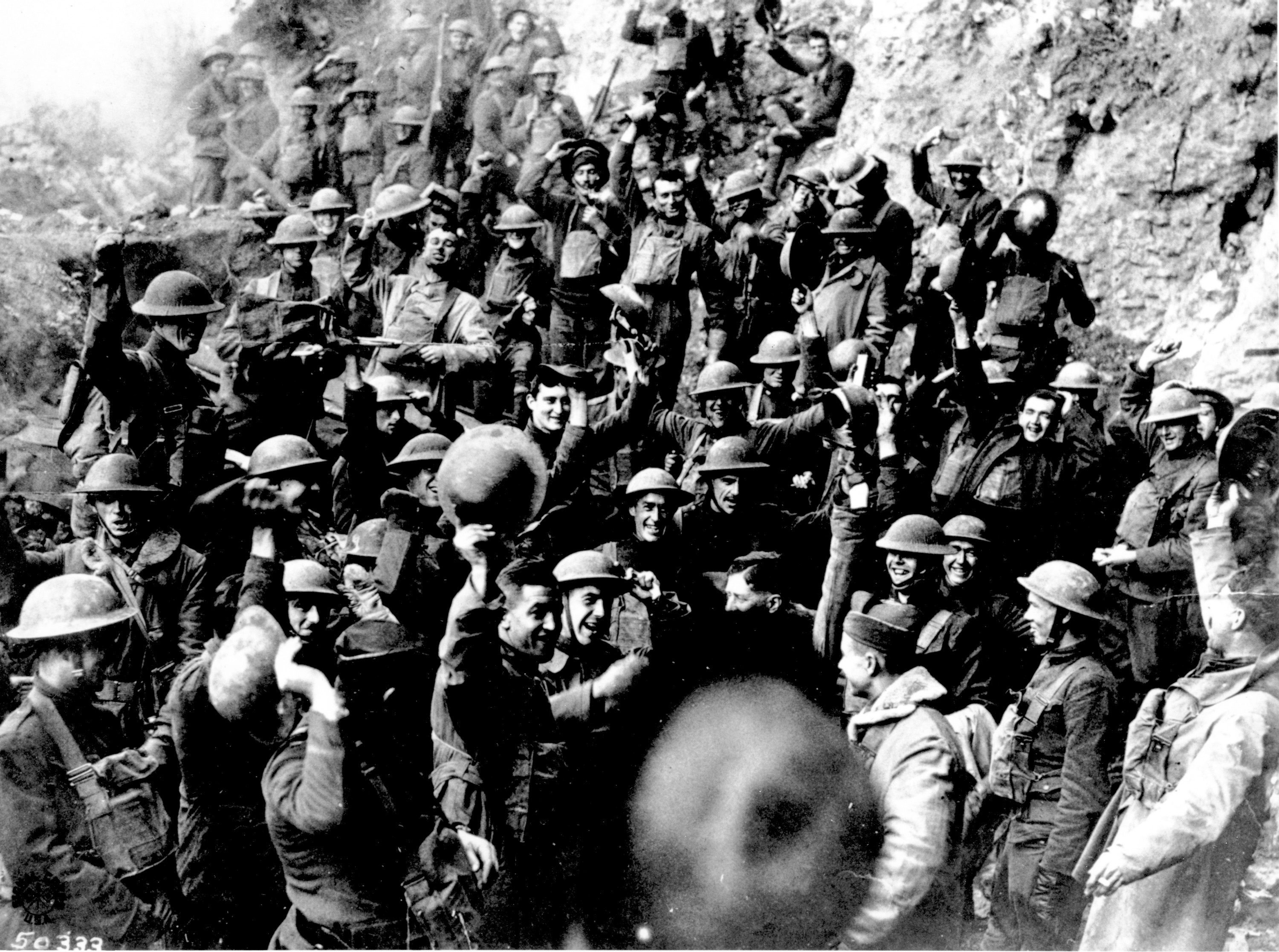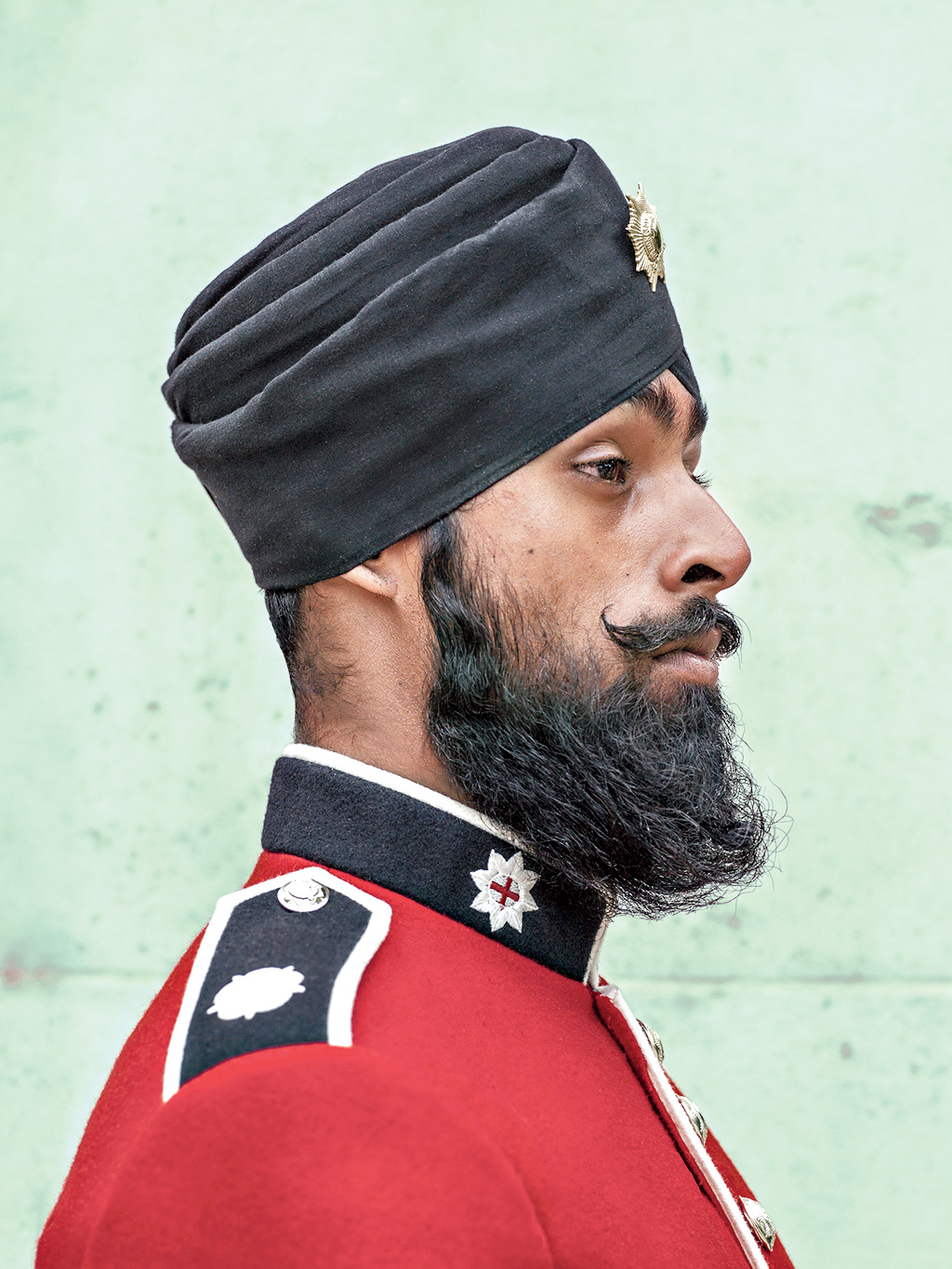On the centenary of the end of “the Great War” that was supposed to end all wars, the present was as much at play as was the past, both with an Indian connection.
Not just because French President Emmanuel Macron spoke bluntly of the threat from nationalism, calling it a betrayal of moral values. US President Donald Trump, who has described himself as a nationalist, sat a few feet away in Paris, stony-faced.
On Saturday, ahead of the Armistice Day ceremony in Whitehall on Sunday, footage of Indian soldiers from the First World War was shown on giant screens in the Royal Albert Hall in London.
Viewers saw an Indian and an Englishman standing side by side in front of the Indian pavilion —the Chhatri — in Brighton, holding photographs of their respective grandfathers.
The Englishman said: “Had it not been for the bravery of Manta Singh I would not be standing here today.”
The Sikh veteran told of his grandfather’s actions: “George Henderson got wounded in France and my grandfather was bringing him back to the safety line and he got shot in the leg.”
The Englishman added: “Manta Singh died of his wounds in Brighton and was cremated here on the Downs.”
This year’s Armistice Day marked 100 years since the signing of the treaty that ended the battle on the Western Front of the First World War “at the 11th hour of the 11th day of the 11th month of 1918”.
It is estimated that up to seven million civilians and around nine million military personnel were killed in the 1914-18 war. Around 1.5 million Indian soldiers fought for Britain; as estimated 74,000 of them died.
The BBC included interviews with the families of service personnel lost in recent wars as David Dimbleby presented Sunday’s ceremony at the Cenotaph in Whitehall, which was watched by the Queen and the extended members of the royal family,
Kishor Chauhan’s voice broke as he remembered his son, 29-year-old Flight Lieutenant Rakesh Chauhan, who was killed on April 26, 2014, while on his third tour of duty in Afghanistan. He died with four of his colleagues when their Lynx helicopter crashed in Kandahar province, 30 miles from the Pakistan border.
“Rak”, as he was known to his friends, was an intelligence officer regarded by his superiors as a rising star in the RAF.
“I remember my son every day,” his father said. “For me Remembrance Day is every day.”
At the Royal Albert Hall, actress Nina Wadia read from Sarojini Naidu’s poem, The Gift of India.
Wadia, in a red sari to match the poppies, began: “Sarojini Naidu was an activist and a poet known as ‘the Nightingale of India’. This is an excerpt from her piece The Gift of India.”
She read the last couple of the poem’s four stanzas. There are several versions of the poem on Wikipedia. Wadia’s version of the final stanza read:
When the terror and the tumult of hate shall cease
And life be refashioned on anvils of peace,
And your love shall offer memorial thanks
To the comrades who fought on the dauntless ranks,
And your (sic) honour the deeds of the dauntless ones,
Remember the blood of my martyred sons!
At the risk of being pedantic, perhaps others would point out there is another version that they would claim to be more authentic:
When the terror and the tumult of hate shall cease
And life be refashioned on anvils of peace,
And your love shall offer memorial thanks
To the comrades who fought in your dauntless ranks,
And you honour the deeds of the deathless ones,
Remember the blood of thy martyred sons!
At the Cenotaph on Sunday, Prince Charles was the first to lay a wreath on behalf of the Queen, who watched from the Foreign Office balcony.
As a gesture of reconciliation, he was followed by the President of Germany, Frank-Walter Steinmeier, who laid a wreath on behalf of the German people.
Prince Harry laid a wreath but it did not have any marigolds. Buckingham Palace said it had been decided to stick to the traditional poppies this year.












